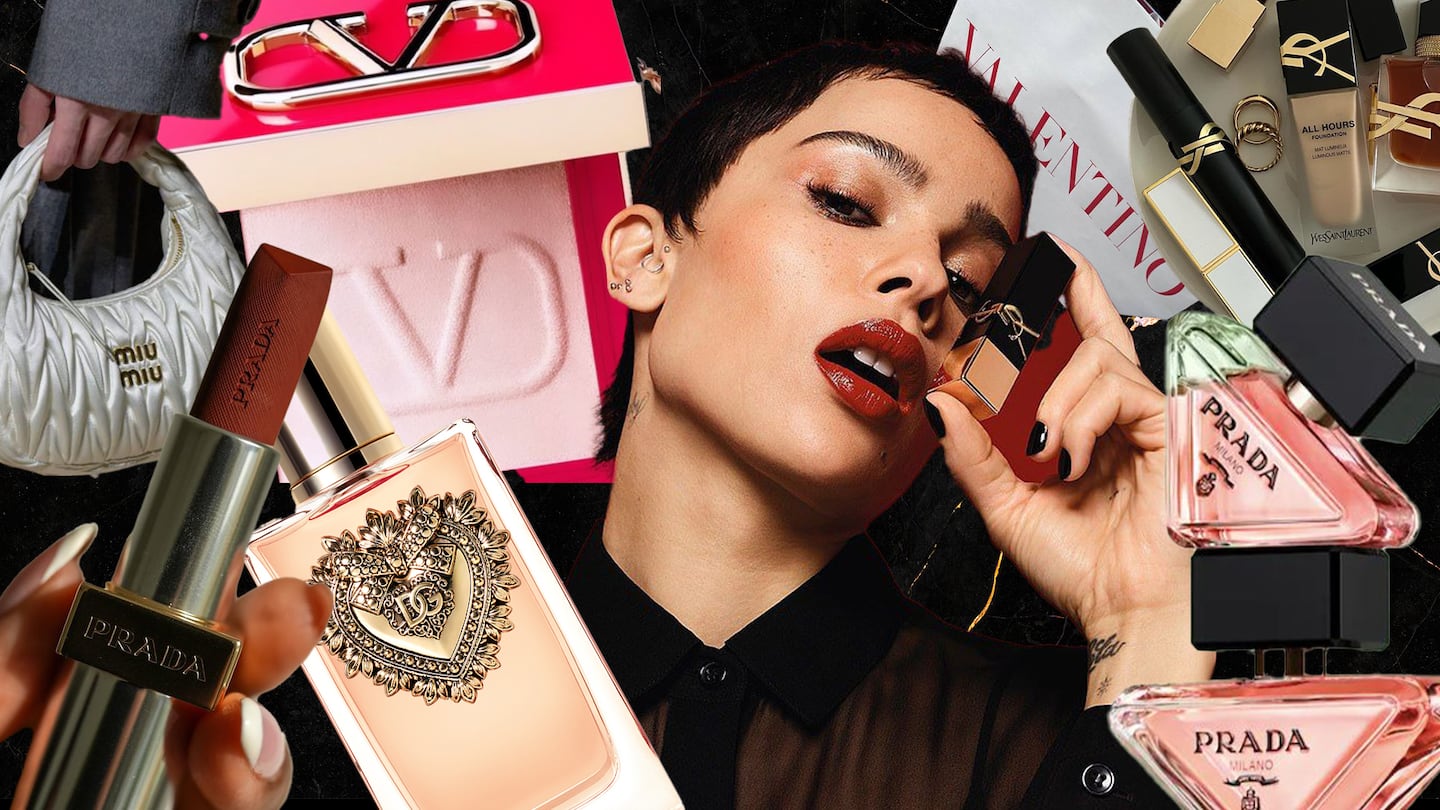
The Business of Fashion
Agenda-setting intelligence, analysis and advice for the global fashion community.

Agenda-setting intelligence, analysis and advice for the global fashion community.

For many fashion businesses, beauty is becoming a lot more than just another accessory.
As the industry grows in value, with more engaged super-users willing to spend big on high-end fragrances and creams, luxury brands are starting to regard their beauty labels as sleeping giants.
Due to the complexity of running a beauty business – which includes in-depth knowledge of formulation, regulation and distribution, to say the least – historically many luxury brands have chosen to licence beauty to a third party such as L’Oréal, Coty, Puig, Shiseido or Interparfums. Those licence deals haven’t always brought in big bucks, but the revenue is pure profit, and comes with big advertising investments and access in distribution channels and price points where luxury fashion brands would otherwise be absent.
Now, motivated by a desire for greater control (and greater revenue) some fashion companies are starting to bring those beauty lines back in house. “Licensing… has become a bit of a dirty word,” said Vincent Jeanniard, a luxury beauty strategist with experience at Burberry, L’Oréal and LVMH, who leads strategic business development at holding company Beauty Brands Global.
ADVERTISEMENT
Kering created a new beauty division in February 2023 and soon acquired fine fragrance line Creed to serve as a centre of expertise in the category. High-end perfumes from its Bottega Veneta and Alexander McQueen brands are now underway, with the first launches slated for year-end. At a meeting with analysts and journalists this month, the group also hinted once more at a homecoming for Gucci, which has been licensed out since its inception in 2006.
Dolce & Gabbana did not renew its licensing agreement with Shiseido in 2021, instead debuting an in-house line in 2023.
Other big brands have resisted the trend: after exploring options following the expiration of its deal with Puig, Prada and Miu Miu decided to enter a new licence deal with L’Oréal.
‘[Brands] think, “I can enjoy all the profit and it seems so easy,” said Jeanniard, adding that the speed and perceived ease with which celebrities launch their own brands gives a false sense of ease. “Brands see that and think, ‘How hard can it be?’”
After all, the licensees themselves rely heavily on their own partners: L’Oréal and Puig may be experts in marketing and distribution, but their perfume divisions depend heavily on the big “maisons de compositions”—flavour and fragrance supplies like Givaudan and Mane—who employ the industry’s top noses, source ingredients and research new extraction techniques.
Fashion houses are starting to wonder if licensees aren’t unnecessary middlemen.
And as luxury brands push up prices and increasingly focus on top-end clients, the airport- and Sephora-grade fragrances that are the core business of most licensees feel increasingly misaligned with their brand image and client base.
The likes of Hermés, Chanel and Dior-owner LVMH have won big with their in-house beauty lines. In Hermés’ 2023 full year results, beauty brought in $528 million in sales, up 12 percent from the previous year. While LVMH’s beauty sales ($8.8 billion) are dwarfed by fashion and leather goods ($45 billion), the division has been on a steady growth trajectory, and boasts the world’s best-selling fragrance in Dior Sauvage. Dior has managed to go further in its bid to control the value chain—even cutting out the maisons de compositions for many flagship scents and building factories to produce the juices themselves.
ADVERTISEMENT
When Dolce & Gabbana took beauty operations in house, it did so with the intention that its beauty line could be a brand building exercise, said Gianluca Toniolo, chief executive of Dolce & Gabbana Beauty.
The new Dolce & Gabbana Beauty that launched in 2023 is a truer reflection of the fashion house’s spirit, per Toniolo. He said internalising the business has allowed the brand experience to evolve “in a unified and renewed” manner combining fashion and beauty. He highlighted the size of the undertaking, noting that the unit now has over 300 people, which was a “significant growth” of its workforce, with new “highly specialised” hires needed. A total relaunch of makeup is expected this year, followed by a progressive launch into skincare in 2025.
Licensees are standing their ground: L’Oréal hosted an event in February to highlight its decades-won expertise in fragrance, showcasing a partnership with the inventors of a next-generation extraction technique and teasing the upcoming launch of an haute parfumerie line for Valentino inspired by creative director Pierpaolo Piccioli’s couture.
Other top beauty players are taking on a bigger role in fashion, recognizing that while couture beauty lines are a dynamic business, the licence model isn’t always ideal for either party. Rather than licensing new brands, Puig has recently purchased the likes of Dries Van Noten outright as well as ramped up investments in the fashion and beauty houses it already owns like Jean-Paul Gaultier and Paco Rabanne.
In November 2022, Estée Lauder splurged $2.8 billion to wrest control of the entirety of Tom Ford, including its fashion business, rather than risk losing control of the brand’s high-end fragrance and cosmetics line.
In the era of ubiquity for luxury mega-brands online, a desire for greater cohesion across all offerings from couture to cosmetics is understandable. “There’s a perception that licensing does not carry [a brand’s] image, just short term cash,” said Jeanniard. Proponents of the licence model point to counter-examples like Armani, where the distilled vision of timeless Italian elegance championed by beauty operator L’Oréal has done as much to anchor the brand’s image as its fashion output.
Going it alone is no small feat, even for global companies. In 2013, at the zenith of its Brit-cool power, Burberry took beauty operations in house, adding foundation, nail polish and colour cosmetics to its range of fragrances. But by 2017, it had switched back to a licence model, with Coty stepping in to take the reins.
“When you analyse step-by-step what it takes to build a value chain in the beauty sector, it’s really far from the one you might have in fashion,” said Veronique Le Bansais, partner and managing director of luxury consulting firm MAD, citing the complexities of product formulas, textures, packaging and distribution. “The instincts or the expertise that you have in fashion do not apply to the beauty business,” she added. Concocting a launch plan that builds on rapid-fire beauty trends and formulation innovation is also an entirely different cadence to seasonal fashion shows.
ADVERTISEMENT
The beauty customer is different to the luxury fashion customer – often less wealthy – and the amount of touchpoints needed is far greater. “With luxury fashion, you’re talking about 400 stores around the world. In beauty, you’re talking up to 15,000 or 20,000 points of sale,” said Le Bansais. Brands also underestimate the power of staffing. To succeed in beauty, on top of finding the right laboratories and logistics companies, brands will need headcount for talented account managers to work with retailers.
Even if companies manage to tick all the boxes, sales have to reach a substantial critical mass before the company is making enough profit to offset their start-up costs – let alone what they would have received through acquisition fees and royalties from a licensee. Jeanniard gives the example of Hermès: a fashion behemoth with great brand recognition and a global footprint, its 2020 extension into colour cosmetics from a simple fragrance line was gradual and is still emerging.
Perhaps that’s why licensee companies are nonplussed about any such rumblings. “When we lost Burberry, we lost 50 percent of our business,” said Jean Madar, co-founder and chief executive of Interparfums, referring to Burberry’s initial decision to go in-house. “Five years later, we were even bigger than we were then.” From Madar’s perspective, it’s not a lack of creativity or vision that holds fashion brands back from running their beauty lines: it’s staffing. “[They] have to assemble a team of experts,” he said.
But it’s not cut and dry. For the length of their licence, brands are tied to their licensees, and hamstrung by their own limitations: if they lose key staff, or hire the wrong agencies, or mismanage supplier relationships, the brand can suffer. Kering’s head, François-Henri Pinault and his deputy Jean-Marc Duplaix, have made no secret of their tepid feelings towards Coty’s efforts, repeatedly telling analysts that its potential is enormous and Coty’s product launch cadence has disappointed.
If a licensee has been responsible for developing and not just distributing products, bringing a brand back in-house won’t usually bring the rights to those products, said Louise Perkin, a partner at law firm HLK, which specialises in intellectual property. There are no cookie-cutter agreements with licensing, she said. If a company also wants to take its hero products with it – think YSL Beauté's iconic Touché Eclat skin brightener or Opium perfume – it’ll likely need to pay up to keep them.
Fashion houses can do clothing at scale, but they “can’t do everything,” said Madar, noting that many fashion companies licence out their eyewear businesses due to its various specificities.
Ultimately, it comes down to the end goal, said Jeanniart. Does the fashion house want to take a slower approach, and spend time building brand equity in beauty, and swallowing years of high upfront costs to reap a potentially bigger reward later down the line? Or do they want the immediate, reliable and shareholder-pleasing uplift of awareness and sales a license can bring?
“Beauty is a great market, the fact that [these groups] are getting more interested shows how attractive and resilient it is. But I would just point out that it took us 115 years to become the market leader. It’s not a market you could manage to understand or have global success like that,” L’Oréal Luxe president Cyril Chapuy told The Business of Fashion in a recent interview. “I wish them good luck.”
L'Oréal is preparing to launch the first haute parfumerie range for Roman fashion house Valentino, the beauty conglomerate revealed to press and buyers at an event in Paris Tuesday.
The move builds on an ongoing relationship between L’Oréal and Miu Miu sister brand Prada, which launched a skincare and makeup line last year.
The luxury fragrance brand has proven time and again that it knows how to win over the youth market. Its latest scent, MYSLF, aims to embody Gen-Z ideas around self-expression — to a point.

Daniela Morosini is a Beauty Correspondent at The Business of Beauty at BoF. She covers the global beauty industry, with an interest in how companies go to market and overcome hurdles.
How not to look tired? Make money.
In a rare video this week, the mega-singer responded to sceptics and gave the public a look at what her beauty founder personality might be.
Request your invitation to attend our annual gathering for leaders shaping the global beauty and wellness industry.
Excitement for its IPO is building, but in order to realise its ambitions, more acquisitions and operational expenses might be required.